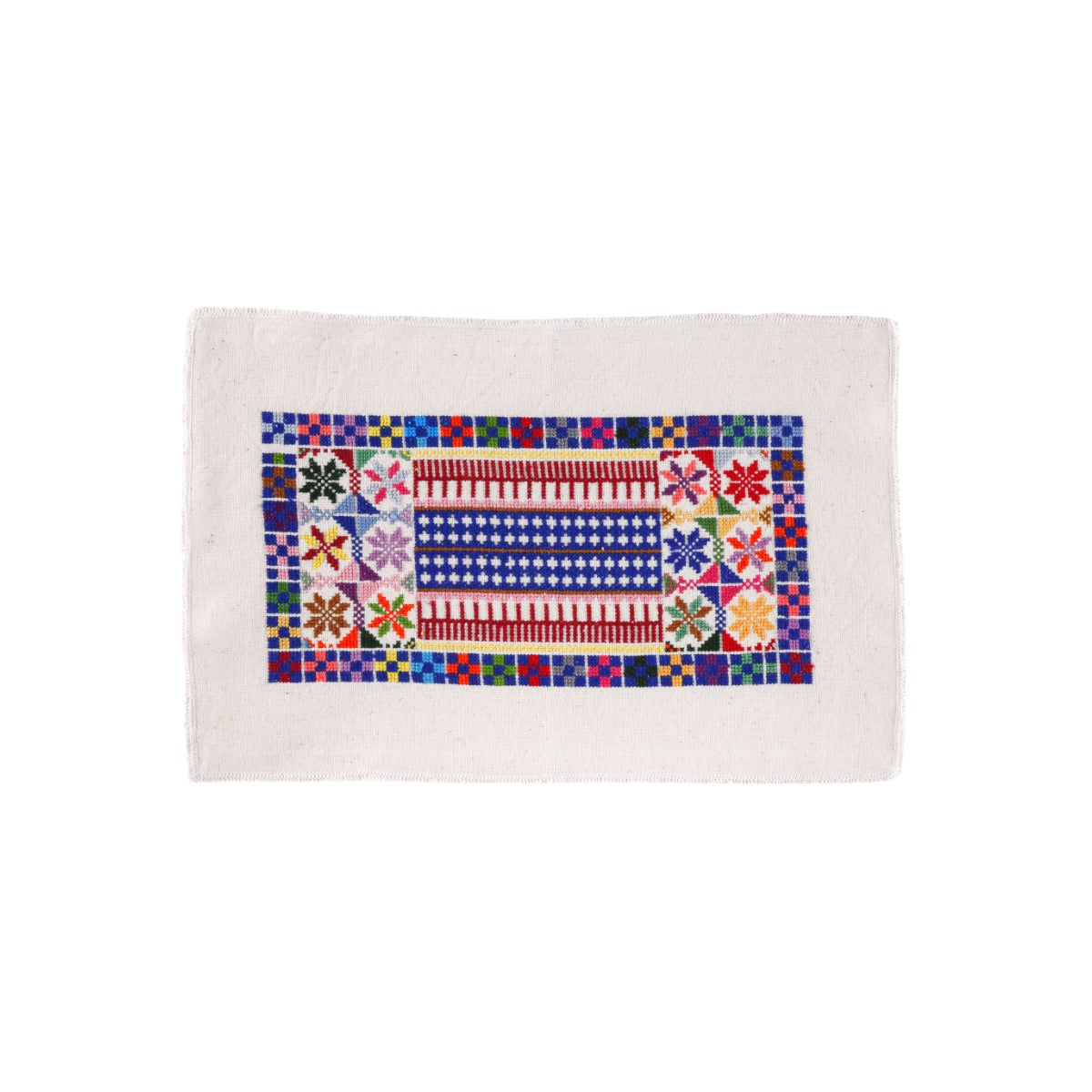Sunbula
Regular price
$38.00 USD
Regular price
Sale price
$38.00 USD
Unit price
per
Shipping calculated at checkout.
Couldn't load pickup availability
Palestinian embroidery made affordable with this special piece of fabric that can be framed or made into what you'd like.
Designed by the artist Suleiman Mansour, it is hand-embroidered by skilled artisans of Surif village. The embroidered part measures 14cm x 29cm (5.5 in x 11.5 in). Each piece varies in color combinations slightly, no two are the same.
Size: 14 x 9 (in)
Surif Women's Cooperative
The village of Surif (pop. 15,000) is located alongside the Green Line (1949 Armistice Line separating West Bank and Israel), in a beautiful hilly region between Bethlehem and Hebron. About half of the village population is refugees from the 1948 war, forced to flee their homeland that later became a part of the State of Israel.
In 1950, a group of Mennonite volunteers came to the village to establish the Palestinian Needlework Program, in order to give the refugee women an opportunity to supplement their family income and to enhance their own self-reliance through empowerment. In 1979, the village women took over the responsibilities to run the project, which, after a period of intensive training, was reborn as Surif Women's Cooperative, in 1983.
Surif's Women's Cooperative is known for their distinct style, using cream-colored 'mansouri' cotton fabric instead of the popular 'eitamin' cross-stitch canvas. The embroidery patterns are produced by a system of counting threads, a method that gives the embroidery its striking and exact appearance on both sides of the fabric. Surif's designs are adapted from traditional Palestinian dresses and reflect the heritage from different regions of Palestine.
In 1950, a group of Mennonite volunteers came to the village to establish the Palestinian Needlework Program, in order to give the refugee women an opportunity to supplement their family income and to enhance their own self-reliance through empowerment. In 1979, the village women took over the responsibilities to run the project, which, after a period of intensive training, was reborn as Surif Women's Cooperative, in 1983.
Surif's Women's Cooperative is known for their distinct style, using cream-colored 'mansouri' cotton fabric instead of the popular 'eitamin' cross-stitch canvas. The embroidery patterns are produced by a system of counting threads, a method that gives the embroidery its striking and exact appearance on both sides of the fabric. Surif's designs are adapted from traditional Palestinian dresses and reflect the heritage from different regions of Palestine.
Sunbula, a Jerusalem-based non-profit fair trade organization, is a platform that supports marginalized women and communities in the West Bank, the Gaza Strip and Palestinian communities within Israel through traditional artisanal crafts.
Dimensions
Dimensions
Care Instructions
Care Instructions


